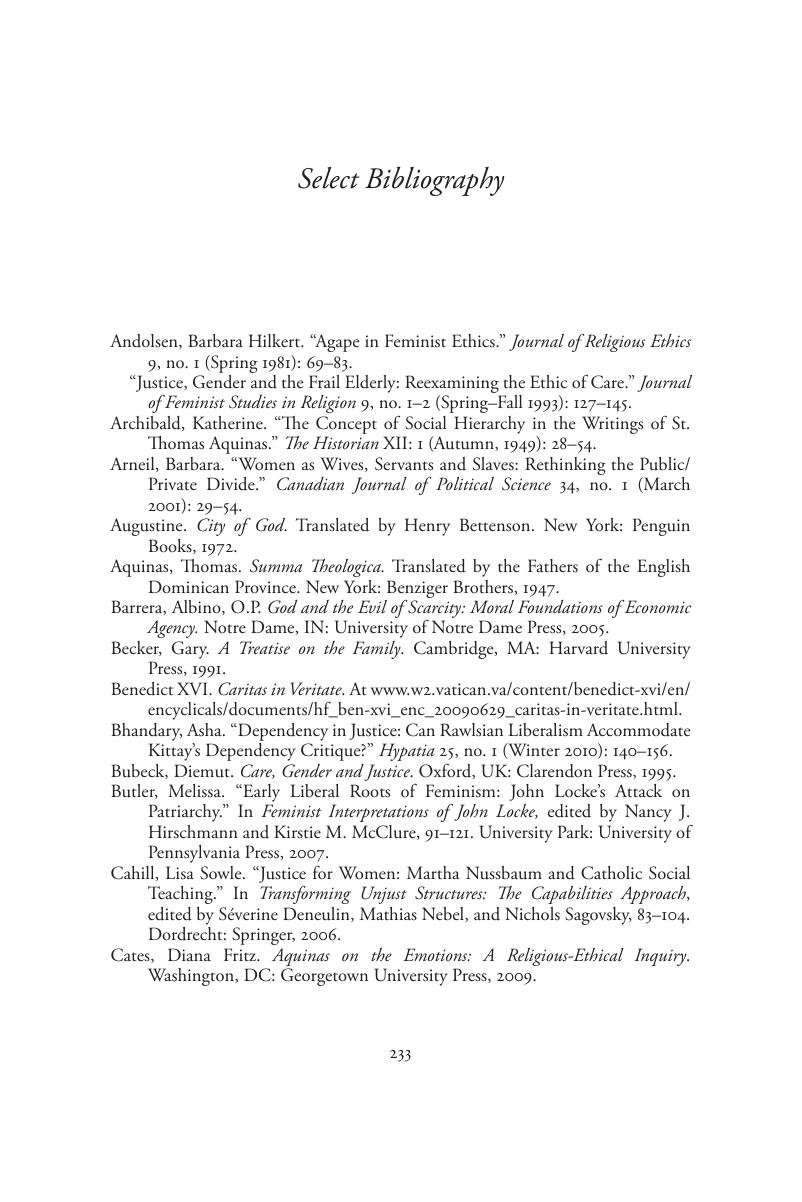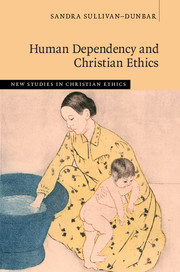Book contents
- Human Dependency and Christian Ethics
- New Studies in Christian Ethics
- Human Dependency and Christian Ethics
- Copyright page
- Contents
- Acknowledgments
- Chapter 1 Human Dependency, Justice, and Christian Love
- Chapter 2 The Marginalization of Dependency and Care in Political Theory
- Chapter 3 Economics and the Erasure of the Care Economy
- Chapter 4 Sacrificial Models of Christian Love: Distortions of Need, Nature, and Justice
- Chapter 5 Agape as Equal Regard: Importing Moral Boundaries into Christian Ethics
- Chapter 6 Contemporary Retrievals of Thomistic Accounts of Love and Justice
- Chapter 7 Elements of Justice for a Dependent Care Ethic
- Chapter 8 Resources for a Conception of Justice Within a Dependent Care Ethic
- Select Bibliography
- Index
- Series page
- References
Select Bibliography
Published online by Cambridge University Press: 21 September 2017
- Human Dependency and Christian Ethics
- New Studies in Christian Ethics
- Human Dependency and Christian Ethics
- Copyright page
- Contents
- Acknowledgments
- Chapter 1 Human Dependency, Justice, and Christian Love
- Chapter 2 The Marginalization of Dependency and Care in Political Theory
- Chapter 3 Economics and the Erasure of the Care Economy
- Chapter 4 Sacrificial Models of Christian Love: Distortions of Need, Nature, and Justice
- Chapter 5 Agape as Equal Regard: Importing Moral Boundaries into Christian Ethics
- Chapter 6 Contemporary Retrievals of Thomistic Accounts of Love and Justice
- Chapter 7 Elements of Justice for a Dependent Care Ethic
- Chapter 8 Resources for a Conception of Justice Within a Dependent Care Ethic
- Select Bibliography
- Index
- Series page
- References
Summary

- Type
- Chapter
- Information
- Human Dependency and Christian Ethics , pp. 233 - 240Publisher: Cambridge University PressPrint publication year: 2017



